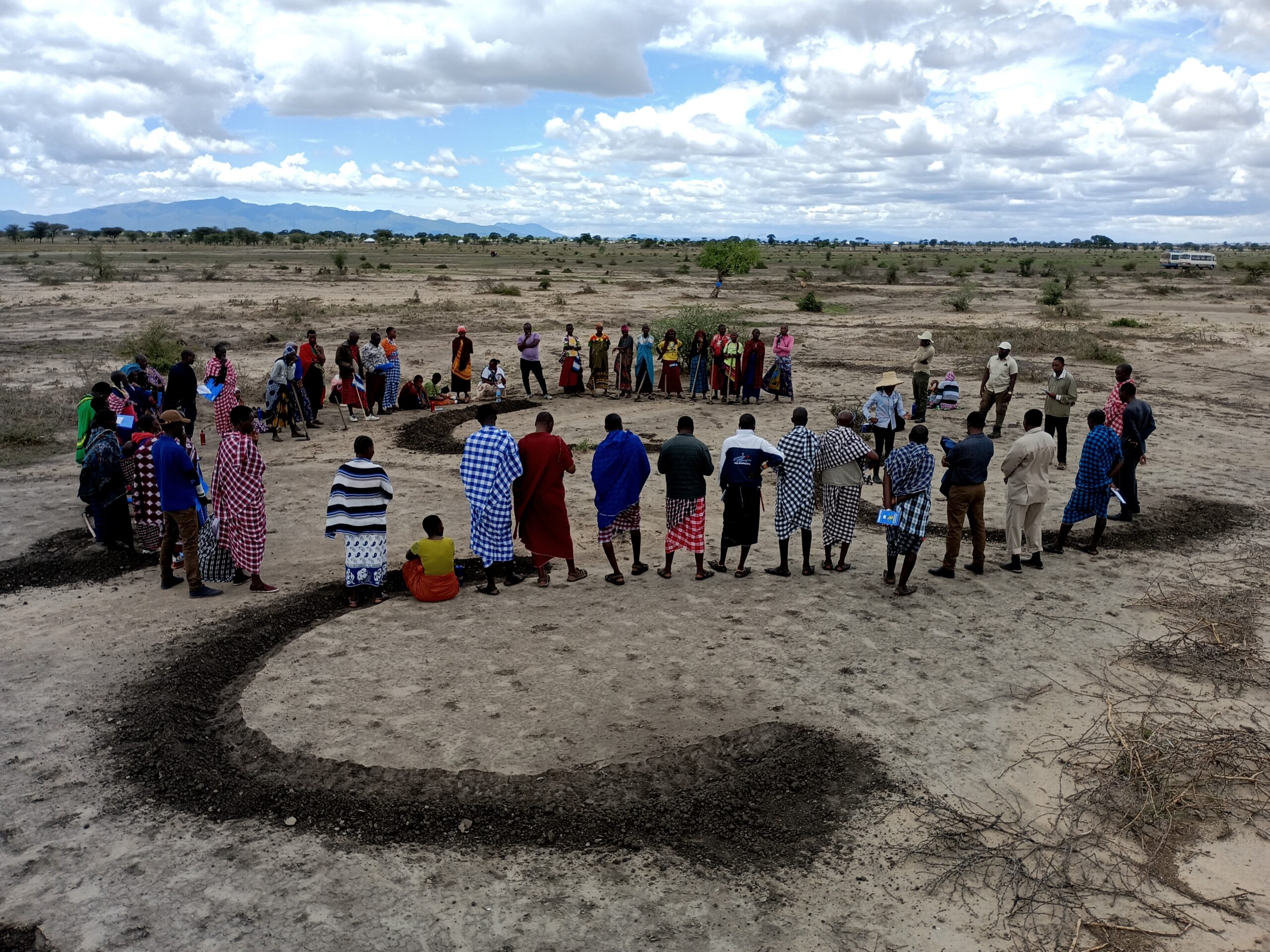RESTORE
Renewable energies and rangeland restoration for resilience in rural Tanzania

Country
Project duration
Beneficiaries
Partner
Building resilience
In the Longido district, in northern Tanzania, the survival of Maasai communities — who rely mainly on pastoralism — is increasingly threatened by a rapidly changing climate. Droughts, floods, and soil degradation endanger pastures and livelihoods, undermining the food security of entire families.
RESTORE wants to bring balance back to this fragile land and renew people’s ability to adapt to the climate crisis. Together with our network of partners, we aim to strengthen the climate resilience of Maasai communities by combining participatory development, risk reduction, and gender equality.
Women, guardians of the rangelands
Around 50,000 hectares of land at risk of desertification are being restored thanks to the commitment of the Rangeland Guardians: 420 Maasai women trained to remove invasive species, rehabilitate pastures, and restore soil fertility. Alongside them, 70 young people learn to monitor ecosystem health using digital tools, collecting data for more sustainable land management.
Women and herders are also gaining new economic skills through marketplace literacy courses, which help them manage livestock and natural resources more effectively — linking environmental protection with financial independence.
Clean energy for a new form of independence
Resilience also comes from innovation. In collaboration with local and international partners, the project supports the national agency RUWASA in its accreditation process with the Green Climate Fund (GCF) and in establishing a technical unit for the management of sustainable water projects.
At the local level, five multifunctional solar plants are replacing diesel pumps - a small revolution that brings clean energy and safe drinking water to more than 8,000 people while powering small-scale businesses. To fight deforestation, 5,000 families have received energy-efficient stoves distributed by a network of 30 local ambassadors: a simple yet powerful action that improves health, reduces emissions, and creates new economic opportunities.
Resilient education and institutions
Resilience is also built through knowledge and participation. RESTORE trains 328 local representatives on climate risk and sustainable ecosystem management, while 72 teachers and 18,000 students take part in environmental education and global citizenship programmes. An investment in the next generation, helping them understand that sustainable resource management is the key to their future.
Il progetto in numeri
180k
potabile in Tanzania
22k+
raccolti a Ibo, Mozambico
52k+
in Mozambico e Myanmar
11k+
di educazione nel mondo
200
di attività economiche
in Tz e Myanmar
1700
in Italia
1700
in Italia
52k+
in Mozambico e Myanmar
1700
in Italia

